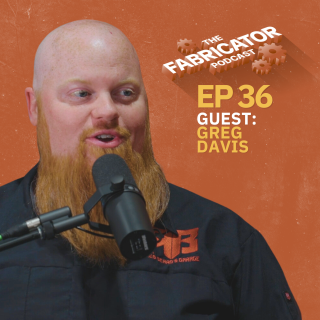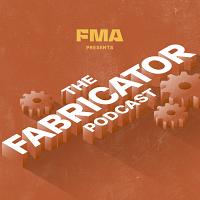Go-kart fabrication, Fast & Furious, and SEMA with Red Beard's Garage
Greg Davis of Red Beard's Garage joins hosts Josh Welton and Rafael Guerrero to talk about his wildly popular YouTube channel, which he uses to teach people how to build and fabricate small engine vehicles like go-karts, minibikes, and side-by-sides. He shares how he started this venture by wanting to build his daughter a go-kart without any prior fabrication and welding experience. He also talks about how the first Fast & Furious movie sparked his interest, fabricating tube chassis for SEMA, expanding his business, some of his most memorable builds, playing Need for Speed, and more.
At the top, Josh and the guys talk about Garbage Pail Kids, sketchy go-kart tracks, and Super Mario Kart.
Email us at podcast@fmamfg.org with any comments, questions, or suggestions.
In This Episode
Learn more about the 2024 FMA Annual Meeting in Florida.
Learn more about Nuts, Bolts & Thingamajigs Foundation.Check out Red Beard's Garage on YouTube and Instagram.
ABOUT THE FABRICATOR PODCAST
The Fabricator Podcast brings you conversations with people in manufacturing who make things out of metal. We speak with manufacturers, metal fabricators, welders, job shop owners, small business entrepreneurs, artists, marketers, educators, and more. Host Dan Davis also goes beyond discussing just manufacturing and the skilled trades, and chats about pop culture, current events, food, music, movies, comedy, and, of course, robots. The Fabricator Podcast is presented by the Fabricators & Manufacturers Association.
Host: Dan Davis
Producer/Editor: Gareth Sleger
Video Producer/Editor: Brandon Geier
Ad writer/spokesperson/social media: Sara Spring
Additional video editing: Dana Wiker
Graphics: Billy Kulpa
Marketing support: Elizabeth Gavin, Mary Diamond
Sales support: Andy Flando, Amy Hudson
Web support: Mike Owens, Jared Carlow
Additional support: Ed Youdell, Maurine Semevolos, Lincoln Brunner, Tim Heston, Rafael Guerrero, Josh Welton, Darla Welton, Amanda Carlson-Hicks, Callie Check, Rick Lehnhardt, Judy Steinbach.
Where to listen to The Fabricator Podcast:
Follow The FABRICATOR:
- YouTube
TRANSCRIPT
Greg Davis: "Since it was our first time going to SEMA," he said, "it would be cool if we have one of your chassis on our table." "So we'll build a tube chassis." And then I called him, I was like, "You know what would be cool, is if we put suspension on it so people could grab it and move it through his traveling. And it gives them something to play with when they come in your booth." And then I called him and was like, "And it'd be cool if we put a motor on this thing because it's just going to look empty as a tube chassis."
Sara Spring: Navigate your leadership journey at the FMA Annual Meeting, February 27th to the 29th in Clearwater, Florida. At this premier event, you'll connect with top leaders in the fabrication industry to share ideas, collaborate to solve business challenges, and build strategic relationships. Chart your course for success in 2024 and beyond at the FMA Annual Meeting. Find all the details at fmamfg.org.
Josh Welton: Hey! Welcome to The Fabricator Podcast. I'm Josh Welton. I'm here with...
Rafael Guerrero: Rafael Guerrero, Editor of The Welder magazine.
Josh Welton: And we are doing a podcast today with Greg from Red Beard's Garage, so we're excited about that. We're going to talk about some go-karts and YouTube building and Garbage Pail Kid cards?
Gareth Sleger: Yeah.
Josh Welton: So, really cool episode.
Gareth Sleger: Everyone has stickers nowadays, right?
Josh Welton: Yeah.
Gareth Sleger: So one thing that caught our eye, I don't know if you can see that, is...
Josh Welton: Oh, yeah. So we didn't actually talk about Garbage Pail Kids during the podcast, but afterwards, Greg made us aware of a sticker that he made with himself as Fat Mac... Fat Matt, I'm sorry. Like a Garbage Pail Kids playing card, which was pretty dope.
Gareth Sleger: It's amazing.
Josh Welton: Then everyone got into looking at how collectible Garbage Pail Kids cards are.
Gareth Sleger: Did you ever collect Garbage Pail Kid cards?
Josh Welton: I wasn't allowed to.
Gareth Sleger: No. I don't think I was either.
Josh Welton: No, that was too satanistic for me, for my family.
Gareth Sleger: It was like that, what was that show in Nickelodeon where they slimmed the slime?
Josh Welton: I'm pretty sure if I watched it now even, I'd go to hell. That's what I thought. So, I stay away from it.
Gareth Sleger: No, Brandon was saying that the Garbage... I mean, these were super popular in what, the '80s or something?
Josh Welton: Oh, yeah.
Gareth Sleger: But you're saying that they're making a big comeback now?
Brandon Geier: Yeah. The Topps makes sets again, they're just making the trading card sets.
Gareth Sleger: They're nostalgic because all the kids from the '80s have money now.
Josh Welton: What was the oldest year they made them?
Gareth Sleger: I don't know. That's a good question.
Brandon Geier: I couldn't collect it either just like you guys.
Josh Welton: Yeah, that would be the devil in my pocket. It'd be like having a little devil on your shoulder.
Gareth Sleger: '85 is when they first were rolled out.
Josh Welton: Those things have to be worth a billion dollars now.
Gareth Sleger: Yeah, probably.
Josh Welton: At least maybe a trillion.
Gareth Sleger: I don't know. Just the fact that he incorporated the Fat Matt design to his own stickers.
Josh Welton: It's so great.
Gareth Sleger: So good.
Rafael Guerrero: Yeah, I did not collect those.
Gareth Sleger: No!
Rafael Guerrero: They're perhaps a bit older than me, so.
Josh Welton: We got the kid on the pod, the youngster.
Gareth Sleger: We also talked about go-karts.
Josh Welton: Yeah, so Greg, he is a badass go-kart builder and one of the coolest things talking to him was, or is, about how he got into it and how he built his YouTube channel while doing it and just basically teaching himself the skills he needs to fabricate. Really super cool. They fit a niche between side-by-side and badass go-karts. They're these long travel suspensions, juiced up motors, really cool little fabrication tricks and I am fascinated by it. I want to build a go-kart now, so I might do that.
Gareth Sleger: You're saying that your dad built-
Josh Welton: Yeah, my dad growing up, my dad was the hardest worker I've ever known. And as a kid he was always at the second house site building log house all night long. And so then I go to college and he's done with that house and all of a sudden he's got time. So he builds my brothers a go-kart and I was so mad. I was like, "What the heck?" Just being selfish because I'm a jerk. But the go-kart was super sketchy. He actually, when he was younger, he built a go-kart with my uncle. They both built dune buggies out of Volkswagens.
Gareth Sleger: Oh, nice.
Josh Welton: So those were cool. I remember he traded it to somebody for an amphibious vehicle. And then that amphibious vehicle, we were all in it on my grandparents' pond or a pond on their property. And it started taking on water and my mom got so scared. So-
Greg Davis: So mate, you get rid of it?
Josh Welton: Yeah, we didn't have that for very long. I don't know that it wasn't normal amount of water being taken on. Either way, that didn't last more than one trip on the water, at least for me. But yeah, he built this go-kart and it's so dangerous and it's so fast. So after he passed I was like, "I'm going to get that and I'm going to make it super nice and fast." And then my nephew swooped in and got it, so I'm going to help him make it really fast.
Gareth Sleger: Nice. There you go. Build that out for sure.
Josh Welton: Oh, I'm going to be picking his brain for sure on a couple of things I want to do.
Gareth Sleger: Rafael, do you have any fun go-kart stories?
Rafael Guerrero: So yeah, I grew up in the Chicago suburbs and a very popular tourist spot for families and others in the Chicago areas, Wisconsin Dells up north, so that's a couple hours north. And not only is it the water park capital of the world as I like to advertise, it's also got a lot of go-kart checks. It's got a number of options there. So that's my experience for the most part with go-karts and I just love doing that as a kid and as an adult.
Gareth Sleger: I remember there was one go-kart track in the Dells that felt like it was kind of off the beaten path and it was kind of shady and sketchy and those go-karts would pick up sparks in the back and you'd get air on some turns. I don't think this...
Josh Welton: You always tried to find somebody who worked at a track or knew the vehicles and they'd be like, "I know how to take the governor off." Those were always the tracks you wanted to go to. So it'd be way faster than you're supposed to be.
Gareth Sleger: Yeah, if the guy getting you into the carts is looking around first before he hits the...
Josh Welton: And then he flips a switch and turns you on and it's like you're going 60 when you should be going 40 or 30.
Gareth Sleger: Exactly. That's the best.
Josh Welton: You always had that one person, you that knew somebody who worked at the track. That's what you're looking for.
Gareth Sleger: Right, exactly.
Josh Welton: Each another 15 to probably five horsepower. But-
Rafael Guerrero: I've also noticed a lot of just indoor go-kart tracks that's popping up huge out of nowhere. Now it's like a place kind of similar mini golf for some and just go there.
Josh Welton: Up in Detroit and a lot of my friends who are serious race car drivers, they like to go there and try to have the best times for the year and stuff like that.
Rafael Guerrero: So I haven't been to one yet. I've been meaning to, I may do it this fall and I just-
Josh Welton: I want to do one of the multi-level ones now. They have both out west, they have some in the mountains like dirt tracks, go-kart tracks that are super cool, but I know they're like off-road go-karts like-
Gareth Sleger: Anyone can-
Josh Welton: It's pretty much flat for the most part, but it is dirt, which makes it fun for sliding them around and stuff like that. And I think somewhere close to us in Detroit is building a multilevel go-kart place. I just saw an advertisement for it or something, but I'll have to double check on that. That'd be super cool.
Gareth Sleger: I'd love to have like a podcast outing, a Fabricator magazine podcast. I will finish in last, but I'll be-
Josh Welton: I was terrible-
Gareth Sleger: Just kick all our asses.
Josh Welton: I'm a terrible racing games-
Gareth Sleger: Really?
Josh Welton: ... and go-karts. I'm just not any good at-
Gareth Sleger: Really? Like Mario Kart even?
Josh Welton: I didn't play Mario Kart.
Gareth Sleger: Really?
Josh Welton: No, this conversation with Greg was amazing.
Gareth Sleger: It was awesome.
Josh Welton: I mentioned it a couple of times before, but it's so fascinating just how he went into his mindset going into doing his channel, his mindset as far as teaching himself basically live while he's doing the things, finding a niche and just hammering it. And now that's his full-time job. He's got almost 400,000 subscribers on YouTube.
Gareth Sleger: Yeah, that's the biggest crazy number.
Josh Welton: So he's killing it. And then his game plan going out I think is pretty spot on too.
Gareth Sleger: Yeah. Well let's check it out.
Sara Spring: Nuts, Bolts & Thingamajigs, the charitable foundation of The Fabricators and Manufacturers Association is on a mission to shape the future of manufacturing by helping people explore careers in this exciting field. With your help, NBT provides scholarships, grants and other resources to support the next generation of makers. And build a strong innovative manufacturing industry for years to come. Learn more about NBT and how you can get involved today at fmamfg.org. And now back to the episode.
Josh Welton: And we're back. I'm here with Rafael from FMA and Greg from Red Beard's Garage, and we're going to talk to Red about the crazy cool stuff he does. I was stuck on what... Before we get into that, go ahead and introduce yourself and what you do.
Greg Davis: Well, I'm Greg from Red Beard's Garage. We're in a small town in Tennessee and we basically teach people on YouTube how to build and fabricate and make side-by-sides go-karts, mini box, everything to have fun and get hurt on. Make it easy.
Josh Welton: I was going through some of your videos and I'm definitely going to be staying in touch with you. Because I want to make an urban side-by-side for the streets of Detroit. That'd be dope. So then I got a go-kart. I got to make go faster, so we'll be in touch. So how did you get into what you do?
Greg Davis: It started about seven years ago actually when I started my YouTube channel, I had never welded, touched a grinder or anything.
Josh Welton: Oh, that's awesome.
Greg Davis: So I had never built anything other than messed around with small things. And I was building a couple of different cars, quickly realized that cars are very expensive and it's never-
Josh Welton: What cars were they?
Greg Davis: One was a Nissan and it was just a front wheel drive sedan and then the other one was the old DSM turbo. The Diamond Star Motor sports cars, like the Eclipses and stuff. And I was learning turbos and just everything was a $1,000, so I would get one thing done and it was the next thing. So I was like, all right, I got to quit this or my kids are not going to have a future.
Josh Welton: Especially on those cars. Because there's so much upkeep going on and some-
Greg Davis: Yeah, they break constantly. They're one of the worst. And so I sold it and actually got out of it and made my money back. So I got to learn about turbos and all this stuff and got to do it for free basically. And I always wanted a go-kart when I was little because it was the closest thing to a car. You could have a dirt bike or a four-wheeler, but a go-kart was like your own little car. So I wanted to build my daughter one and that's what started this whole thing.
Josh Welton: Nice. So you documented that process on YouTube and that's kind of how your following got started?
Greg Davis: Yeah, so I started looking up videos myself to try to... Because the go-kart world was huge and I didn't realize how big it was. It was as big as... Because I grew up in the Fast and Furious times and when I saw that movie it blew my mind. I didn't know you could do all that stuff to cars. So when I found go-karts, I felt that all over again because there was all these parts to trick out a go-kart from performance to visuals. And I couldn't find anybody on YouTube explaining why you would do these parts over or how to even do it. I was so frustrated spending hundreds of dollars, didn't know how to install the parts. So I was like, I'm going to figure out how to install them and I'm going to show people how to install. So that's what really created the whole channel. I always wanted to do YouTube, I just need to find out what I wanted to do on that.
Josh Welton: Right on.
Greg Davis: And this was it.
Josh Welton: Yeah, it takes a lot of patience to A, do the process and learn the process at the same time as you're filming the process. What was the most difficult part of doing that?
Greg Davis: The biggest thing was time. I had, of course, a full-time job. I was working 7:00 to 7:00 at a dealership as a technology specialist. So I was teaching people how to use their technology during the day.
Josh Welton: Gotcha.
Greg Davis: And then I would come home and spend a few hours with my family and then I was in the garage till about 12:00 at night. And then I would edit a little bit before bed and then edit on breaks at work and stuff. So time was my biggest... I had a good understanding of camera placement and you need really good lighting is the most important thing on YouTube. You can have the worst camera in the world, but if the subject is lit up really well-
Josh Welton: Lighting is king.
Greg Davis: And so then I just started investing money and I maxed out every credit card I had for that. Because I knew I could make a living with this, so I went at it as hard as I could.
Josh Welton: Well, at what point did you know that, did that realization hit that you could make a living doing that?
Greg Davis: Well, it's hard to remember back, but I think it was like six months and haven't made any AdSense revenue, which is for those that don't know how you make an income from YouTube, you make a percentage of what they make off the ad. So I was like, "Man, I hope this kicks in soon because I've done maxed out this credit card and I've done did this and I quit doing my side jobs." I used to wire cars on the side for people. And I had to quit doing that to focus on this. So God is a big part of my life. That's what brought me to this career. I feel like God has blessed me with this career and one night I was at my quitting point because I was broke and just thought it wasn't going anywhere. So I laid in bed and prayed that God would just help me where I was going to quit. I just needed a sign that I was supposed to be doing this. And at that moment, and this is true story, I get an email and it was Google saying, you have to put in your tax number to get paid. And I looked and I had $1,500 in there and I was rich.
Josh Welton: No kidding.
Greg Davis: No, but that really was huge for me because we hadn't made a penny off of it. And then there was $1,500 waiting for me right when I was praying about what I was going to do.
Josh Welton: That's so dope. I thought you were going to say a welder fell out of the sky or something like that, but that's even better.
Greg Davis: No, I got a secondhand welder on the channel and my first weld is on the channel. I mean, you can see I open up a welder and convert it to run on gas. Because it was just a flat score.
Josh Welton: Got you. Yeah, yeah. I'll have to check that out.
Greg Davis: So my very first weld in people was like, you're running too fast, too much wire speed. And I just listened to what they said and watched a few videos and started welding.
Gareth Sleger: Any of those comments stand out to you?
Greg Davis: What'd you say?
Gareth Sleger: Any of those comments stand out to you from your first weld?
Greg Davis: Yeah, just everybody was supportive more than attacking you. That's one thing I feel like God's blessed us with on the channel is-
Gareth Sleger: That's awesome.
Greg Davis: ... our comment section's really, really good. You'll get hate every once in a while, but I remember them just walking me through what to do and then I started looking up videos on what to do and what they was talking about and-
Josh Welton: Right on.
Greg Davis: ... within a couple more welds I felt like I was comfortable with it.
Josh Welton: Yeah, a big part of that is figuring out who you should listen to and who doesn't know exactly what they're talking about. And that comes with experience. I was very ignorant when I... Like when YouTube first started becoming a big thing everyone's like, "You should start a welding channel." And I'm like, "There's already welding channels out there and there's some techniques that, hey, you should show this on YouTube." And I'm like, "I can't look at the person face to face. I don't know if they're going to learn this." But the reality is a lot of people have become really good welders by learning from other people on YouTube and-
Greg Davis: Yeah, we did. I did take some bad advice early on. One guy taught me, he was like, "Oh, you don't need to..." I was MIG welding everything at the time, and he was like, "You don't have to clean. If it's rusty, it'll weld through. It if it's got slag on it..." And now I sand everything.
Josh Welton: Cleanliness is godliness.
Greg Davis: Yeah, I ran into so many problems because of his advice.
Josh Welton: Yeah, that's terrible advice. I mean, I guess if you're welding with a 6010 stick rod, but I am a big proponent of prep every part of the surface that heat's going to touch. And it'll suck that crap right back in.
Greg Davis: Yeah. Now we acetone parts and after sanding them we acetone them and I mean, you just know you're not going to get any porosity and it changes everything.
Josh Welton: Welding is like a paint job action reaction and if something's going wrong, there's something causing that. So it's nice to start with a clean slate where you know that's not going to be the problem.
Greg Davis: Yeah, it's like a paint job. The more you prep the better. Of course you got to be a good welder too. But it's going to help significantly.
Josh Welton: So what's your background in watching your videos? I saw you've got a lathe, you've got a big band saw, you've got the cutoff saw, you've got a bunch of cool stuff. Especially with the lathe. Did you teach yourself how to use that?
Greg Davis: Yeah, so everything in our shop, I pretty much taught myself just because I didn't go to school for it. And so I got that lathe is a 1942 model. And we think it came off like a navy ship.
Josh Welton: That sounds about right.
Greg Davis: Because of its color schemes and stuff, and traded a Chinese four-wheeler engine for it and-
Josh Welton: Seems like a good deal.
Greg Davis: ... really good trade. It was a $400 engine. I probably got a 3000 from it. And it set forever because it kept kicking belts. It's a leather belt driven old school lathe. And one day I was like, "You know what? I'm going to get this thing fixed." So me and a buddy spent hours and it was just someone had adjusted the motor off incorrectly and then I was intimidated. I'm very bad about being intimidating by something. Because everybody's watching me learn how to use this tool.
Josh Welton: That is a big deal.
Greg Davis: So you don't want to look like an idiot in front of the world. And so one day my wife was in my office and I was like, "I'm going to go learn how to run that lathe." And I understood it. I just didn't know. So I started turning random pieces of steel and I mean, I feel like anybody can learn something in a couple of days if you really put your mind towards it, and I never looked back. It's like when I got a welder, I was like, "How did I do this without a welder?" I would pack everything on a little trailer, drive an hour to my brother's house, he would weld stuff for me-
Josh Welton: Oh wow.
Greg Davis: ... at the beginning of the channel. And then I would drive home and every single time I'd get home and be like, "Oh my gosh, I forgot to weld this." So when I got a welder, I was like, "How did I do this without a welder?" It's like how did I make it this long, lathe the same thing? It's like I couldn't live without it now that I have it.
Josh Welton: I like that just after I haven't done the deep dive yet, which is coming. But you seem like you are a practical builder. I look at different people and there's some people who are so pedantic... Why can't I say that word? Pedantic? Whatever.
Greg Davis: I don't know. They're so particular?
Josh Welton: I don't know what I'm saying either, obviously. They're so like by the book and everything's got to be to the half a mill's tolerance or whatever tolerances you're working with. And you can't do it this way. The way I like to work is I want to get the job done with what I have. And sometimes that means doing things not exactly by the book. It seems like you just do what works.
Greg Davis: Yeah. Yeah. We are not doing mill spec on these buggies.
Josh Welton: Exactly.
Greg Davis: But there's one place I do worry about that and that's with my suspension geometry. Because we've failed at that before and so now I perfected that. But yeah, with-
Josh Welton: Was that trial and error?
Greg Davis: Yeah, that was on national TV trial and error. So the Discovery Channel reached out.
Josh Welton: Oh, no way.
Greg Davis: They was like, "We would love to put you in a part of this episode." So I had just got a tubing bender from my buddy. I never used a tubing bender before. And I was like, "Oh, we just got a tubing bender. We can build a twin engine chassis." So they was like, "We'll send the film crew out and film one day." So I had five days, and so in five days I learned how to use that bender and we built a full tube chassis with full suspension. So we cut the suspension off a early '90s go-kart. It was a dual AR and front suspension and we didn't know there was all this geometry. So we welded on straight and everything. And so they're there at our shop for one entire day filming. And we drive out of the garage and there's about a four-inch inch drop. When we drop out that four inch drop, both tires toe in really bad. I mean extremely bad. And I'm like, "Oh, my gosh." And they're filming and then the news showed up local news, so they're filming. So here we look like a bunch of rednecks. So here we are driving and I drove it anyways, but I'm fighting it. I mean every bump it hits, it's toeing in and going in and out of camber, it was horrible. But the episode turned out... I was really afraid they would make me look like an idiot because you never know. And it didn't. And you can watch that Discovery Channel episode out there. So that was my first failure on... And I learned so much from that. So now I started reading forms on why did this happen? And actually found it, believe it or not, on Mustang forms. A guy was building a Mustang. He had did some drop front end on it and he was having that problem. We found out all these different kingpin angle, Ackerman angle and all these geometries that you have to get right. And then the second buggy I built has 17 inches of wheel travel and zero bumps here.
Josh Welton: Nice.
Greg Davis: And now it's very easy. It's like, "How did I not know?" But I mean it's so easy to not know when you've never done it.
Josh Welton: Exactly. I always look back and now that I'm the old guy, I look at somebody doing something, I'm like, "That's common sense. Why aren't they doing that?" And then you think back and you're like, "I was taught that somebody told me that I just didn't know it."
Greg Davis: And being on YouTube, you forget because I've done this for seven years. Someone asked a question, I'd be like, I made a video about that. I'm not answering that. And then I've got to-
Josh Welton: You got a bunch of new people.
Greg Davis: Yeah, it seems repetitive to me, but this is the reason I started this. I got to go back to my roots every once in a while and really explain. But to me it's like, "Man, I've talked about this a 100 times, but I guarantee everybody's watching like, oh, I didn't know that." So I have to remind myself that all the time to have patience.
Gareth Sleger: Any projects that from the past that you look back at it and you're wondering, it's like, "Why did I do that? I can't believe I did this."
Greg Davis: There's one vehicle... No one actually knows this. There's one vehicle that haunts me and that's the second buggy I ever built. And it's the most views we've ever got on our channel, which is a supercharged harbor freight engine. I did full build internals and then built the long travel. It's the one with 17, 18 inches of wheel travel. And love the buggy, it looks amazing. But I made one mistake in it. And when I was building the floor pan on the fab table, I messed up on my measurements, got the center bar down the center of the chassis, one inch off, don't know how I did it. Not a big deal most of the time, but my whole center measurements came off of that measurement. So I didn't realize I'd done it and I built the whole front end and then when I got the back end, I was like, "Why is this measuring like this?" So my buggy is one inch longer on the left-hand side than it is on the right-hand side. And I'm like, "Oh my." And I hate it because of that. I look at it, I don't want to finish you. And it's very hard if I wouldn't have told you that you'd have never seen it, but now if you've seen it, you could find it on the chassis. Because it's a horrible mistake. So that's the one that haunts me the most.
Gareth Sleger: And that's your second most watch video now?
Greg Davis: It's the most watched.
Gareth Sleger: Oh, most watched?
Greg Davis: Yeah.
Josh Welton: What's the video that got little traction, less traction that you thought it would?
Greg Davis: There's been a lot of them. Because you never know.
Josh Welton: The algorithm is always jacked up.
Greg Davis: Yeah. We put a Chinese radio out and it goes viral more than anything and I'm like, "Are you kidding me? We're not even..." This is an off the shelf radio. One I was real excited for is we went to like a trade show. Or not a trade show, like a parking lot sale and bought all these parts and we bought a set of dodge headers and we built a truck out of a set of headers. So we welded the headers together and the collectors was the frame, the whole headers, and we mounted the motorcycle and I thought that would go like crazy because it was all junkyard parts. We had a crazy rake on the front end and all this insanes. And we actually used the headers and piped in the motorcycle engine to exhaust out the back of the headers. So not only is the frame the headers, but they was exhaust as well. It did good, but at the time it did 30,000 views, which is what a normal... I was like, "Man, I thought that would go." And we've had a lot do really well that we didn't expect. And we had it the opposite way too. You really never know.
Josh Welton: You're closing in on 400,000?
Greg Davis: Yeah, we're real close.
Josh Welton: That's awesome.
Gareth Sleger: That's awesome.
Greg Davis: Yeah, it's insane. You forget your milestones, just you're so busy. But I mean I can remember the biggest number I remember early on was 6,000. I remember because that's when I started reaching out to sponsors and stuff. Because we needed help to do these videos, but I remember 6,000, I remember 100,000. Because we got our plaque and actually never showed our plaque on our channel. I just didn't want to seem proud or whatever.
Josh Welton: Gotcha.
Greg Davis: It's in the garage, but I never said anything about it. It's in there. It's actually got weld spatter on it too, so.
Josh Welton: What would be the project that you felt when you got done with it, the most sense of pride? Like you were maybe wondering about it going in and then you came out of it and it was like, "Oh wow, that killed that."
Greg Davis: It was the most stressful project and that was the buggy we built for quantum machinery group to take to SEMA. So he called me and was like, "Since it was our first time going to SEMA," he said, "it would be cool if we have one of your chassis on our table." And I was like, "Yeah, so we'll build a tube chassis." And then I called him, I was like, "What would be cool is if we put suspension on it so people could grab it and move it through his traveling. It gives them something to play with when they come in your booth.
Josh Welton: Interactive.
Greg Davis: And then I called him and it was like, "It'd be cool if we put a motor on this thing because it's just going to look empty as a tube chassis."
Josh Welton: And then it would be cool if I just came in doing a wheelie on it and just drove it up onto your table.
Greg Davis: And then I called him, I was like, "You know we could pretty much be done with this with just a handful more hours and you could have running vehicle." So it escalated and we left it bare metal, but that is the perfection of my chassis and suspension building. Because everything is so square on that chassis and I only had three weeks to build this and we had to drive it to North Carolina to ship it out to Vegas. And I built the entire chassis, which you can see on the channel, and I got done with it because it takes me about 15 to 16 hours to build a tube chassis. And I build them off top of my head.
Josh Welton: Not bad.
Greg Davis: I don't know what I'm building when I start, but I just go with it. And I stood back and looked at it and it looked like a dune buggy from the '80s and I was like, "I can't take this to SEMA." So it was probably the most stressed I ever was in my entire life. I remember my daughter went to my wife and said, "I've never seen my dad like this." Because I didn't know what to do. Because I got all these people really waiting on me to show this. So I cut it all apart in one night and rebuilt it and it's the best chassis that I've ever built by just sizing. It's like a Naskart inside, you're just so hugged in there and we end up putting a Harley Davidson 883 engine on it.
Josh Welton: Nice.
Greg Davis: And could be bad, could be good, who knows?
Josh Welton: You get to find out.
Greg Davis: And then it got shipped off and that was one of my greatest accomplishments. It's just so perfect in every way.
Josh Welton: That sounds killer. I had a point in my art journey where if I wasn't happy with the sculpture, even though I was almost done with it, I would have to cut it apart and just make it right, whatever it took. Was there that realization for you then or did it happen before then at some point where you finish a project and you're like, "No, I should have fixed that." And then you don't. But is there a point where you see that as you're doing it now?
Greg Davis: Yeah, I can tell if I start questioning it, my wife knows I'm probably going to cut it apart. I'll start and I don't know why I do it now. I know once I start questioning it's like you should stop right now and start over. So if it gets in my head, I will normally work another day on it and then I just ruin all my time, because I'll just cut it apart. But as soon as I start second guessing, I need to just stop, a note to self.
Josh Welton: Note to self, just stop.
Greg Davis: For future.
Josh Welton: What's the biggest buggy you've built?
Greg Davis: Probably my supercharged buggy was really too big in areas that didn't need. It was my first real chassis I built. So it's a single-seater, but you have eight inches besides your shoulders to the row cage and that's just a waste of space. It's so large and that's why I say the SEMA buggy is so perfect in every way.
Josh Welton: It's proportions....
Greg Davis: Hey, I'm six foot tall and it fits me like a glove. So that was one that it's a little overkill, it's a little too long and I could shorten it up, but it is what it is now. It's a stepping stone that we can have.
Josh Welton: What was the reaction you got from that?
Gareth Sleger: Is this the one right here on the screen?
Greg Davis: Yeah, this is it yeah.
Josh Welton: That's sweet.
Greg Davis: So the most of views video on our channel is building that engine. Like I said, we took a 22 horsepower harbor freight engine that revved the 3,600 RPMs and then we built it. So what we're guessing is around 70, 80 horse and it revs the 9,000 RPMs.
Josh Welton: That's awesome.
Greg Davis: And pushes 14 pounds of boost. And then the day I started that and drove it, I mean it just blew my mind. And what's crazy is I've never finished it fully. It's finished, it just needs a few tweaks and then painted.
Josh Welton: It's a work in progress.
Greg Davis: But it's one of those things that it was the biggest thing of my career at the time. So it's almost like I'm avoiding it for some reason.
Josh Welton: Gotcha.
Greg Davis: I just mentally got to... And this is actually what we're going to do when we get back is strip this down, get it powder coated and finish it finally.
Josh Welton: So you got a bit of land to play around on?
Greg Davis: We got almost 15 acres there.
Josh Welton: Nice.
Greg Davis: And then we have mountains all around us, so really we have unlimited options of where to ride.
Josh Welton: Right on. Do you ever get into rock crawling chassis or anything like that?
Greg Davis: I haven't yet, but we will. I'm sure. We've been rock crawling in the rock bouncers, but we haven't so far actually built a straight axle. I like independent A-arms, double A-arms. So I haven't messed with straight axles much, so. I need to though, to learn the geometries of those and stuff.
Josh Welton: Do you go to other channels, learn these builds or you just do your own research or take classes or anything?
Greg Davis: When I was doing the suspension, no one was teaching it in cars or anything. People would talk about one little segment of it, but they wasn't saying, "You need to do this, this and this to get perfect geometry." So I found it in forms and just trial and error and then made my videos to explain this is how you do a double A-arm and now we're actually in the process of producing A-arm kits that you can buy so you don't have to figure it out. It's already done for you. Coming soon, of course. The hardest part of a chassis is the suspension. It's easy to throw something together and make it, it's not easy. But it's an easier part of it to make it look good and safe. But when you get the geometry of the front end, there's so much to take in account.
Josh Welton: My buddy Max Fish actually wrote a book, it's been within the last 10 years, I haven't talked to him in a minute. But he was like a suspension guru. He ended up writing a book for everyone who thought that putting a Mustang 2 front end was the way to go. And it's pretty in depth, but it's illustrated and he's incredible with suspension stuff. I'll send that to you, you think about it.
Greg Davis: Yeah, that was my biggest thing is I only wanted to watch a video.
Josh Welton: I know, right.
Greg Davis: I need to get it done quick. Because with YouTube at the time I was trying to put out I think two videos a week. And it blows my mind to look back at you miss the good old days because it used to take me four days to do something I could do in an hour now. It's insane as a fabricator where you get to and it's like, "Why am I not... I used to get two to three videos done a week. And I can barely get one a week." Well it's because it used to take me a week to do these things and now I'm doing them in a couple of hours, especially with the machinery we got. And so it gets harder to produce content also as you go.
Josh Welton: And that's interesting.
Greg Davis: People expect you to do bigger and better.
Josh Welton: And if you're not doing that, then they start looking for stuff elsewhere.
Greg Davis: And you start playing it off and dropping in views and you just A has been at that point you got to keep on.
Josh Welton: I saw somebody comment that they wished they saw more riding videos of you. That seems like a lot of YouTube videos. That's basically how they build their following was just doing stupid stuff on go-karts. How do you feel about doing stupid stuff on go-karts for views?
Greg Davis: We've done a lot of riding videos. Normally I don't anymore because they're boring to me. Unless you're jumping a huge gap and stuff.
Josh Welton: You got to do more crazy, get the bulldozer out there.
Greg Davis: Unless you're doing something crazy. Even driving fast through the woods. What I like to do is it's almost a trophy truck through the woods as fast as I can go through those woods.
Josh Welton: Love it.
Greg Davis: And it looks awesome, but still we don't get a ton of views on them. So I'm like, what should I put my effort in spending-
Josh Welton: Yeah, I got you.
Greg Davis: ... 15 hours editing this video or 15 hours working the shop? And so that's the reason we don't put... There is an amount of people that watch it, but it's nothing like a build. So it's almost like you're better off building something than riding something.
Josh Welton: I see.
Greg Davis: Because we do ride stuff all the time just and normally when I go riding so tired of filming, I just want to have fun.
Josh Welton: I know, I know.
Greg Davis: We have all intentions to film and then we get there and it's like, "Nah, I don't put a camera on that. Let's do it."
Josh Welton: That's what I'm saying. It's impressive. The videos that you post of your work, I'm supposed to be filming something for something. And then I'm like, wait, I just finished this and I didn't take any pictures. Get in the mindset of working and you just want to work.
Greg Davis: And my wife loves getting out of the house and going on vacation. I love not filming and just working on something. That's what-
Josh Welton: That's a vacation right there.
Greg Davis: Yeah, because work is filming. What I'm doing is what I love and what I'm passionate about. So that's my next vacation. Is just everybody leave me alone and let me turn off the cameras and work on something. And do it at my own pace and...
Josh Welton: So you talked about sponsors, what companies? You're here with some sponsors, right?
Greg Davis: Yeah, yeah. So Quantum Machinery Group was one of our original sponsors. We got a Siegmund weld table from Germany. And one night we was trying to figure out how... I was tired of clamping stuff to wood and trying to weld out in the garage. So I told my wife to email, go on Google, type in weld table, top 10 results, email them this. And so if I would've known she would've emailed Quantum, which is Siegmunds are the Cadillac of weld tables, I'd have told her not to. And they was the first ones that actually reached out the next morning. They saw my testimony on my channel where how God had blessed me with this and he called me immediately and was like, "I feel God telling me to do this." And I'm like, "That's insane."
Josh Welton: You missed a 100% of the shots you don't take.
Greg Davis: And it was such a blessing. And then after he called-
Josh Welton: That's awesome.
Greg Davis: ... all the other weld tables started calling. And luckily, I mean I feel like it was a God thing, the greatest one called first, which is normally not the case.
Josh Welton: No.
Greg Davis: The biggest and baddest normally come in late. And so we've been with them for maybe five years or so. And it's been an awesome partnership and we have tons of other from little sponsorships to big. And it's a big way... You really can't do YouTube successfully without sponsors, honestly not in this day and age. You don't make enough from the ad revenue to do it. You really got to bring those in. So you just pick wisely. Pick something that you think your followers would actually like. I'm not going to be throwing an ad up for some makeup or anything. It's going to be something related.
Josh Welton: All right, now before I weld today I'm going to put on some eyeliner. That would actually probably be a hit. Maybe I should do that. Yeah, no, that's an interesting perspective. I haven't talked to a lot of people who built a channel. And the way you're doing it seems, it's a weird to say, but it seems like morally responsible. Where so many people, it's like the ends justify the means and half the stuff they're doing up there is bullshit or doing stupid stuff that cost them their life almost or whatever. You did that from the ground up just teaching yourself. And I admire how you built that, a lot.
Greg Davis: Yeah, appreciate it.
Josh Welton: Nice job with that.
Greg Davis: And one thing, a lot of YouTubers and there's nothing wrong with this, I'm not downing anybody. A lot of them build stuff just for the views. I've never once built something for the views. If I wouldn't honestly want to build that and not film it, I don't build it. And a lot of people don't like that. They want to see us put a high booster engine on a shopping cart and it's just like for one, I got two kids and a wife that I love very much and I don't want to leave behind. So let's build something with a cage around me. And-
Josh Welton: It's not where your heart's at. That's gimmicky stuff. What you're doing isn't gimmicky.
Greg Davis: If I can't sell it to you and make you want it, then I don't want to build it because at the end of the day, I don't want to have this fortune of vehicles.
Josh Welton: You got a junkyard full of stuff that you built from 30 years ago.
Greg Davis: Yeah, I get rid of stuff, but a lot of channels are bad about building just this crazy. And again, I don't want to risk my friend's life or my life, so the views aren't worth it at the end of the day for that. And there's opportunities, I've had thoughts of-
Josh Welton: I'm sure.
Greg Davis: ... man, this would be a great video, but I'm not getting on it and I'm sure not letting my friend get on it. So I just pass it up.
Josh Welton: Call me if you ever need that and I'll get on it.
Greg Davis: I'll get your number afterwards.
Rafael Guerrero: I was going to say you have several of your videos have hundreds of thousands of views, millions of views, and just wondering about has that ever sunk in as, "Oh wow, I got all these people just kind of following my every move and that they're investing their time and effort, what I'm doing?"
Greg Davis: The biggest thing is I never... And I do think about that, I think the last time I checked we was around like 65 million total views on our YouTube channel. I'm no different than you or anybody that meets me. We're all on the same level. We're the same. It's just for some reason people want to watch me do it. Biggest thing is I want to be the best godly example.
Josh Welton: You're very handsome.
Greg Davis: Thank you. But I want to be the best godly example I can for people out there. And the biggest thing is I am not trying to push God or anything, but people think of God as this boring lifestyle. And look at the way I'm living and I'm living for God. So that's my biggest goal in life-
Josh Welton: Gotcha.
Greg Davis: ... is to do that because of what God has done for me. So yeah, that's the only thing that hits it. Am I being an example that I should be, we've never cussed on the channel or used anything-
Josh Welton: That's pretty rare. It's really rare.
Greg Davis: And we don't drink. I haven't drank in seven years probably so. And people see that. They notice it and they reach out to us all the time. We get Christmas cards from wives saying that-
Josh Welton: It's so great.
Greg Davis: That's the biggest thing that's ever happened is a while back a wife had sent me a postcard, or it was a Christmas card, saying that her husband was an alcoholic and stuff. And he saw my testimony and now he's out in the garage right now with her kids and that I gave her her husband back and I broke down at my computer when I read that. That was-
Josh Welton: You got to cry after that.
Greg Davis: ... was better than any money or anything you can make from this.
Josh Welton: That's incredible. That's awesome.
Greg Davis: That's what it's all about.
Josh Welton: Touch people while you're doing what you love. Leading by example of how you live your life. I mean, you got it. You nailed it. So where do you see this going? Talk to different people and some people have a plan, most people have a plan. I'd never had a plan. It was just like I work and chips fall where they may. Where do you see yourself in five years? In 10 years and 15 years?
Greg Davis: Yeah, I've had a five-year plan since I was five years old.
Josh Welton: Keep updating it.
Greg Davis: So where I want to be now is we're working on our parts to start selling parts to make this hobby easier. Because there's a bunch of companies out there doing stuff, but no one's making it affordable and easy. And so we're using Miata parts and just different, very cheap and easy to get parts that are very strong at the same time for what we're doing. And coming out with front end kits and brake brackets and things.
Josh Welton: What kind of parts do you use out of Miata?
Greg Davis: CV axles and wheel bearing. You can use their wheel hubs and there's CV axles you can get, I mean 20 inches of wheel travel while they're CV axles. As long as you have your geometry right. And I mean a Miata you can push with a turbo 300 horse and they handle it. So crotch rocket engine doesn't make that much torque. So they're great parts. And I think two of those CV axles are a hundred bucks and-
Josh Welton: That's very reasonable.
Greg Davis: Yeah, and they're wheel hubs with bearings in them or $60 for two of them. So if I can build everything around those parts and their brake rotors work good with these weld wood dual piston calipers that are cheap. So we figured all this stuff out and on the rear you use Mini Cooper wheel bearing assemblies. And it's just, we figured all this stuff out through trial and error to make it easier for them. So we're making all the brackets for them to bolt all this stuff together.
Josh Welton: Gotcha.
Greg Davis: Because a lot of people in this use Porsche axles, because you can buy them in any length, but they're extremely expensive.
Josh Welton: A Porsche?
Greg Davis: Porsche, yeah. Like VW Porsche.
Josh Welton: I got you, yeah.
Greg Davis: Because you can get them in any length you want because of the rail buggy days, they made all this stuff. But you're spending four times as much as a set of Miata. Where if you just do your suspension right, you can use them right off the shelf. The SEMA buggy had Miata parts, it had a 350Z parts on it. We found all these parts that are really easy to get and cheap and that's what we're pushing.
Josh Welton: A hell of a buggy. That's awesome.
Greg Davis: I think it has the steering off a 2004 Toyota Prius electric power steering in it. And so we've got everything molded in this. So you have turned... I mean you can steer them with one finger, our buggies. And no bump steer, but that's what we're trying to help these people create is the same thing.
Josh Welton: You're kind of straddling the gap between hardcore go-kart and a side-by-side.
Greg Davis: Yeah.
Josh Welton: Would that be a fair assessment?
Greg Davis: Yeah, that would be the best way. A modern day dune buggy. Because back in the day people was building these things in their garages and scrapping stuff together.
Josh Welton: My dad had a VW buggy when he was 18.
Greg Davis: And it died off for a while, that you didn't see it. And now it's sparked back up. And now with the internet, of course you can watch people do anything. So it's awesome, but that's my five-year goal was to build that up. I built a big shop, which was my quote unquote dream shop, and now-
Josh Welton: It's crowded.
Greg Davis: I got one baby bay left and I-
Josh Welton: I think we all know that story.
Greg Davis: So next is a bigger shop and then start producing these parts and we're starting a podcast next year.
Josh Welton: Nice.
Greg Davis: We don't have the room for it right now. But yeah, we have a lot of plans just to keep growing the business and hopefully they all, we can see it through.
Josh Welton: Hell yeah, I like it.
Rafael Guerrero: What projects do you have in line here for the future? That you can share with us.
Greg Davis: We got the SEMA buggy back. Because it stayed gone for over a year. It went to SEMA, then it went to PRI and then it went in their showroom. And it's pretty much done. It just needs linkages made and the main fabrication's done, gas tank needs to be built, things like that. So we're finishing it, we're finishing my buggy and then we got a Honda Gold Wing. And it's a boxer six cylinder, a 100 horsepower bike. And we're putting it on a chassis and I want to make a daily driven buggy that you can drive to the grocery store. Because Tennessee, you can put a tag on a horse if you want to.
Josh Welton: They got the same thing out west. Arizona's the same deal.
Greg Davis: Yeah, no problems with putting a tag on anything so you can get anything street legal in Tennessee. So we're going to get street legal and I'm going to make me a vehicle that I can drive to the parts store and stuff with a Honda Gold Wing engine.
Josh Welton: Yes. Have a little trunk or a little bed in the back for-
Greg Davis: Yeah, you're going to have a dump bed with hydraulic cylinder. Yeah. Yeah, and that's my next big project, which we actually already got chassis built.
Josh Welton: Nice.
Greg Davis: We kind of quit on one project I didn't like, but it's got a really cool chassis and I was like, "That's what we're going to use." So it'll be a quicker project now that we have CNC plasma tables and stuff. I'm not spending nine hours grinding anymore.
Josh Welton: I liked your little magnetic hold down too. I might have to get one of them.
Greg Davis: For... What is it?
Josh Welton: Better than going through all my gloves?
Greg Davis: Yeah, it's very nice and they're very cheap and I highly recommend it for sure.
Josh Welton: How long have you had the plasma table for?
Greg Davis: We got it last December or right before December and put that thing together. That was a kit. It's all in pieces. It's an Avid CNC kit, so you can actually swap it over to a router if you want. I say kit, makes it sound cheap. It's very robust and that when we got it, it changed my life.
Josh Welton: Nice. We just got a fast cut CNC and just haven't had the time to really dig into it. I've made a few parts here or there. But yeah, when you make that first bracket that you were going to have to series of four brackets you were going to have to make by hand and you just did it in five seconds. It's like, "Oh, this is different."
Greg Davis: It's a game changer. On the flight out here, that's what I was doing is I had my iPad, done some CAD brackets to get them ready for when I get back. It's so fun just to pop in the office for 10 minutes, make this bracket and then cut it in one minute and then my garage isn't covered with grinder dust. And-
Josh Welton: Are you designing anything from scratch or is it mostly Miata?
Greg Davis: Everything is yeah. Everyone had spindles. Yeah, we did Shapr3D, which is a simple... I mean you can do anything in there, but I wouldn't call it Fusion 360 or anything. But I learned with it and I don't see a reason to moving past it, because I can do everything. But I taught myself two days or one night really. And then in two days I was ready to cut seven different parts.
Josh Welton: Nice.
Greg Davis: And to me that stuff comes very easy, which I was in software and hardware-
Josh Welton: Gotcha.
Greg Davis: ... and computers before this, which was self-taught. I got a job at a dealership to sell cars and got in there and I was like, "I can't not know what I'm going to make every month." So then I was like, "What can I do?" Because I'm not going back to factory work. I hated factory work more than anything.
Josh Welton: What kind of factory work did you do?
Greg Davis: We made windshields at some point for cars. It's called Carlex. And then I worked at a corn... What was it? A high fructose corn syrup plant.
Josh Welton: Yes. I'd be dead right now if I worked there.
Greg Davis: Yeah. And then worked at a block company that made center blocks and I fed the machine. Just dead end jobs really honestly. And I couldn't stand feeling like a robot.
Josh Welton: Not really career-
Greg Davis: I was just a number to the company. And then I got this job at this dealership and again, found out I don't want to sell cars. This is horrible. I needed stability is what I needed. So I saw the IT guy come in and set a computer up and then two hours later they had to call him back and it was like a $100 fee every time. And I was like, "Man, he's making all this money. I could save the dealership." So I ordered a computer kit and started reading about software and two weeks later I took the owner out to lunch and I was like, "Listen, I can take over your entire IT department if you'll let me. Because I don't want to sell cars. And I don't want to be a mechanic anymore. I thought I wanted to be a mechanic, but I hate working on cars."
Josh Welton: Same.
Greg Davis: So he said, "I'll give you a two-week trial." And then it went from there and I was there for six years as their technology specialist.
Josh Welton: Right on.
Greg Davis: And running 60 computers and-
Josh Welton: Did they end up replacing you as someone like you or do they just go back to calling people in when they need them?
Greg Davis: It took three guys to take my job. So now they hired three guys to fill my position.
Josh Welton: Come back and be like, "You should have been paying me more, huh?"
Greg Davis: Yeah. Well I was working 20 hours when I quit. I was there for 40 hours. And that's how, honestly, I owe that job a lot because I was able to learn the ins and outs of YouTube. Because I went after YouTube as a career. It wasn't never like, "Oh, it's going to be a hobby, it'll be fun." I was like, "No, this is how I can make money at it and this is what I'm going to do." And I was able to learn that while sitting there at that job.
Josh Welton: That's a lot of foresight that you saw that. I know a lot of people go into it trying to, but it's still more of a side thing. But going into it with a plan, obviously it worked pretty incredible.
Greg Davis: Yeah. Yeah. This was when I started it was in the vlogging days. Do you remember everybody vlogging?
Josh Welton: Oh, yeah.
Greg Davis: And I was like, "Why? How are these people doing this?" They was doing daily vlogs, and I never wanted to vlog like, no one's life is important enough for you to watch or me to watch.
Josh Welton: Once or twice a week's good.
Greg Davis: And then that's when I was like, "How are these guys doing this?" Because every day a new video would pop up from them. And I started digging into it and found out about revenue, and then when they would show this product on their channel, that company's paying them for their placement, I was like, "That's what I'm going to do."
Josh Welton: Right on.
Greg Davis: And went after it. And we had tried YouTube before and you can't find these videos, but we did comedy skits. And they're hilarious, but I could never let them see the light of day these days.
Josh Welton: I know. You got to maybe slip that into a bonus episode or something.
Greg Davis: Well, these was BC, before Christ, so I keep those on a drive deep down.
Josh Welton: We're now AC.
Gareth Sleger: What were the theme of the skits though? You can talk about that.
Greg Davis: I mean, just to give you a taste. This is when the bath salts incident happened. So we did a bath salts episode where I'm like, "Hey, you want to try some bath salts?" But I ordered Bath & Body works bath salts to my door. And then my friend ended up eating the UPS man's leg off because of the incident that happened in Florida with the... So that's what I thought it was about. There was several of them, but I just couldn't... I spent a ton of money buying cameras and it was hard to find help. My friends was in college and stuff, and here I am trying to make YouTube videos with them. So I gave that up, which I'm glad I did. Comedy's very hard to do. I love to laugh. That's one of my favorite things in the world, is make people laugh and to laugh.
Gareth Sleger: It's easier to teach people to build something than try to make them laugh, I think.
Greg Davis: And try to make money off making them laugh. It's even harder.
Gareth Sleger: Well, one thing I noticed was that this hot rod of go-kart that you did, what's the story behind that?
Greg Davis: Oh, that's sick.
Gareth Sleger: It caught my eye.
Greg Davis: Guy at our church had that he bought for his son and his son just doesn't care about engines. So we went and got this thing out of a dog barn. He raised his German shepherds and it was covered with hay and everything. And we made it way faster than... I can't fit in it because if you notice on the videos, my friend who weighs 140 is in it every time. But we put big drag slicks on it and hydraulic disc brakes and electric start engine and stuff. And now it sits outside like, "What am I going to do with this? I can't fit in it." So it's just one of those... It's an awesome... I think it was used for the Shriners Circus and stuff.
Josh Welton: Oh, yeah.
Gareth Sleger: Like parades.
Greg Davis: Yeah, I think that's-
Josh Welton: That guy won all the races.
Greg Davis: Yeah, I think it'll do like 60 mile an hour now.
Gareth Sleger: Really?
Greg Davis: It's got all kinds of awesome features. We did rack and pinion steering in it like a car.
Josh Welton: Oh, that is so sketchy. I love it.
Greg Davis: This is after we did a lot of work to it. I think it was before we did the steering. But yeah, the body's just held on with four bolts so you can see it shaking.
Josh Welton: Sure. Is that the original paint?
Greg Davis: Yeah. Yeah, we was going to paint it like ZZ top the red with the... And if I ever finish it, that's what'll be done to it. But I don't know what to do with it now, so it just sets out there.
Josh Welton: I need to lose some weight and I'll drive it around.
Greg Davis: Maybe that could be my goal. Lose weight to fit in that.
Josh Welton: Right. You and me both. Now we see this and obviously we've seen the buggies. What's the weirdest thing you've ever built or even worked on?
Greg Davis: It would be that header. We call it the Rat Rod Truck. Because it was just-
Josh Welton: Where the frame was, the -
Greg Davis: The headers of... I think it was Dodge. Pretty sure we had to find headers that was symmetrical because some engines will have the pipes all weird. We needed them exactly the same on each side of the block. So when we welded it together, that was the weirdest. And then I sold it. We got done with it and sold it to a guy and I don't know where it's at now.
Josh Welton: Right on.
Greg Davis: But it was definitely fun. Because we bought everything at a swap meet.
Josh Welton: Swap meet, yeah. That's-
Greg Davis: That was the word I was looking for earlier.
Josh Welton: You were almost there. I couldn't think of it either. Once you said it, I'm like, "I know what he's talking about. Why can't I think of it?"
Greg Davis: Yeah, so we did that from a swap meet and need to do that again one day. Just go buy everything we can from a swap meet.
Josh Welton: That's a great idea.
Greg Davis: And go build, yeah.
Josh Welton: Yeah, it'd be cool to do. We could set up a build off where everyone goes to their junkyard and grabs a certain amount of weight of parts and comes back and builds a go-kart.
Greg Davis: Yeah, I would love to at one point, this is hard because of insurance purposes and stuff. But I would love for some viewers to be able to win a chance to come fab with me for a weekend or something.
Josh Welton: That'd be awesome.
Greg Davis: And bring their vehicle and we could fix it up. But then you worry like, "Man, what if they get hurt and they sue me?"
Josh Welton: Liabilities.
Greg Davis: That's my biggest fear is I don't want to make my family suffer for something that happens.
Josh Welton: Here's a pile of paperwork that you're going to have to sign. It's going to take about two hours.
Greg Davis: And we talked. We might as well just start telling people, if you get a vehicle from us, it's for show only. It's a replica, not meant to drive. And if you drive it, that's on you.
Josh Welton: Yeah, yeah, for sure. A lot of disclaimers basically, yeah.
Greg Davis: Yeah, yeah. We'll have to pay some good lawyers.
Josh Welton: Is there anything that we haven't hit on that you want to cover?
Greg Davis: It's a great hobby. I always say with this hobby, what got me into it was is it's cheap. And you learn so much now I know full geometry of front end-
Josh Welton: Practical knowledge.
Greg Davis: ... that I never thought, yeah. And you can use that because a lot of vehicles have double A-arm front suspension and stuff. So I always tell people, even if you don't think you care about this stuff, you can learn so much. We're building engines with 400% more power than they came with, reliable. And you learn a combustion engine, you learn fabrication, you learn all these things. But you're doing it on a scale that's very affordable. These engines are $120 at Harbor Freight that we're building. I mean, yeah, they're $2,000 when we get done with them. But-
Josh Welton: That's what I was just going to ask, is the work that's done with them.
Greg Davis: Yeah, they're insane. Nothing's really stock on them. Normally the only thing we keep stock is the block and the crank. But everything else, I'm talking lifters, push rods, everything. Even the heads are fully done.
Josh Welton: From where do you source those from?
Greg Davis: There's a bunch of companies that they're more than you think once you start digging-
Josh Welton: Modify those.
Greg Davis: ... parts that make like billet. There's an aircraft company out of Georgia that makes billet rods and billet flywheels for them, and it's just their side hustle. When they're million dollars machines aren't running for the government.
Josh Welton: That's awesome.
Greg Davis: They make go-kart parts. But yeah, there's tons of companies out there to find anything you want to do to these things. It's just endless.
Josh Welton: So I got a friend just, he bought a place that has a go-kart track on the property and it comes with six go-karts. So he's going to give one to each of his friends to modify. But I want to modify the engine because nobody else is going to do that and just blow them out of the water.
Greg Davis: Just ship you an engine-
Josh Welton: I'm also fatter than they are, so.
Greg Davis: Yeah. I can ship you an engine that's 22 horsepower and 9,000 RPMs and I can guarantee you they won't build what-
Josh Welton: I love that.
Greg Davis: ... this one will have it.
Josh Welton: I could even redo the frame and make it out of heavier material. That'd be awesome.
Gareth Sleger: You said Fast and Furious piques your interest in all of this now. What's your favorite Fast and Furious movie?
Greg Davis: The very first one.
Gareth Sleger: First one.
Greg Davis: I didn't like them after Tokyo Drift a lot. I still watch them. I watch one day, me and my son and daughter sat down and watched. This was before Tokyo Drift.
Josh Welton: Two and three was awesome.
Greg Davis: I loved it and a lot of people downed it, but it was one of my favorites. But I just remember renting the first one. I didn't even know what it was. My brother came home with it and me, him and my mom-
Josh Welton: From Blockbuster?
Greg Davis: No, our town's too small for a Blockbuster. I think it was Main Street Video or something.
Josh Welton: Yeah, like that where I grew up too.
Greg Davis: No, we actually have one in the Ingles grocery store. So you walked in the grocery store and there's a little movie rental. But my brother came and we watched it and I remember just my mind was melted. And I turned it right back on. I watched it three times that night and it was just like... And that's when Walmart started getting neons and Advanced Auto Parts had the Nopi. You remember the Nopi brand stuff, which was just neons and hubcaps and stuff. But that's when my mom would get groceries, I was in the automotive. I was just dreaming what I would do with this stuff. And we're doing a modern day version of that, just tweaking everything. And it's a blast.
Josh Welton: Those movies had such an impact on so many different genres of just wrenching and building and fabricating.
Greg Davis: They fueled every high school in America when that first one came out.
Josh Welton: Monte Carlo versus the Viper in the Tokyo Drift. That was so dope.
Greg Davis: Everybody's Honda Civic and Dodge Neon automatically went to a race car. And it might've just been paint, but-
Josh Welton: Everyone had their lightnings with... I can't remember what their shop was.
Greg Davis: The Performance Shop?
Josh Welton: Yeah.
Greg Davis: I can't remember what it was called.
Josh Welton: They had that on the side of their vehicles.
Gareth Sleger: I feel like all the Fast and Furious movies came out as most high schools are getting rid of their shop programs.
Josh Welton: And at the same time, Monster Garage was a big part of that revolution that I think we're starting to see now come to fruition. Where you've got all these next generation builders that got into it because of those guys. And their styles are going to be way different than the people before them. And I think that sometimes creates a little bit of friction, but it's better off for the industry as a whole progression.
Greg Davis: And then you have wildly different budgets from a network show to us. So you get to see-
Josh Welton: The innovation.
Greg Davis: ... you could just buy everything off the shelf or using junkyard parts and eBay parts for little cars. So I think it's a good mix up what everybody thinks they should lock one guy and hate the other. And it's like why can't you lock them all?
Josh Welton: They're all different.
Greg Davis: It's all different.
Josh Welton: They add their different thing to... No, everyone wants to turn everything into a rivalry on social media in real life. I say that as my actual rival, Tom Pats, is going to be here at some point for me to interview. So arch nemesis.
Gareth Sleger: So this is your third time attending FABTECH in Chicago?
Greg Davis: At Chicago, yeah.
Gareth Sleger: What do you always hope to get out of it every time you attend? So we're recording this, what first day of FABTECH? We're literally-
Josh Welton: The show just opened.
Greg Davis: My favorite thing is meeting people, which I like looking at the machinery, but honestly, can I afford this water jet that I'm looking at? But it's incredible at the technology... You see stuff, it's like, "Man, that is crazy they have that now." Because again, we was using grinders for so long. But I love meeting people, even people that don't know who I am. We're just talking about the products we use in our garage and it's just awesome being surrounded by... You know everybody here likes what you like.
Josh Welton: Like-minded people.
Greg Davis: Yeah, fabrication and just building stuff. And I love Chicago. I haven't been to many big cities, but this is one of my favorite places we go to for sure. I wouldn't take it over our little Sweetwater Tennessee, but I like it here quite a bit.
Josh Welton: Fair enough. Cool thing about looking at things that seem odd of the world now is that the trickle down happens. And all of a sudden 3D printers are affordable and then the plasma tables become more affordable. Robotic welding cells, guys are buying them to start shops out of their garage. It's really incredible how quickly some of that's becoming attainable. And it's a process, but five years from now, I mean you might have a robotic welding cell doing parts for you-
Greg Davis: For a couple thousand dollars.
Josh Welton: Yeah, running 24 hours cycles. So that's one fun thing at FABTECH is you kind of come here and dream about some things and that's changed. The first one I went to, which was like 20 some years ago, it was pure big industry. And I think the conference had a little bit of a struggle adapting to when it became more of a... I mean it's still the heavy industrial, but now you've got these guys coming up that don't necessarily work for anybody but themselves. And it used to get blown off, but now they're getting attention because those guys and girls are building businesses that then are investing in these kinds of things.
Greg Davis: Yeah. Yeah, Georgia was the first one we ever went to. And then so we went, I think it was our fifth or sixth year-
Josh Welton: Oh, right on.
Greg Davis: And it was awesome. Because we had never been to anything like this before. So when we was seeing water jets that can sit on your desk at work and stuff, it was like, "Man, this is insane." And then yeah, like you're saying is technology's advancing so fast and stuff is getting so cheap. We have lasers, we can cut stuff in our garage. And it just blows me away that what you can get now because when I was a kid there was nothing. There's not even barely internet. So it's crazy to see where the world's gotten to.
Josh Welton: Yeah, it's definitely evolving at a quick pace at this moment.
Rafael Guerrero: I was going to ask this earlier, but when we were talking about the movies, but any movies outside of Fast and Furious, the car movies that you love?
Greg Davis: Fast and Furious was the one. There was copycats that tried to be, and of course Fast and Furious was the OG one. And I can't think of another car movie that comes to mind. I remember Swordfish when that was a real cool movie. Kind of different because they weren't fixing up cars per se, but yeah.
Gareth Sleger: What was that movie that incorporated the Mini Coopers? It was like a hesit movie.
Josh Welton: Italian Job.
Greg Davis: I've never seen that movie actually.
Josh Welton: I just saw that one on your list.
Greg Davis: The old one is really good. The new one's pretty good.
Josh Welton: I watch all kinds of weird B movies though. There's this one out right now on Netflix called Last Lost Bullet and it's dubbed a lot of these movies coming from different countries are dubbed now, so you don't have to... You can do both. But this dude puts a V10 Lamborghini engine into a compact French car and then fortifies it and then drives through a jewelry store to make a theft. That's awesome. But he ends up driving all the way through because just too much power. And then he gets caught. But there's some modification, not glitzy modification, he just throws together stuff on his car. I'm big into Mad Max. I love the Mad Max aesthetic. My truck was really nice and now it's not. So I'm just Mad Maxing it out.
Greg Davis: And that's probably my favorite movies was in the world, movies like Mad Max Style. But one thing that did pop into my mind was Need for Speed. When Fast and Furious came out, need for Speed Games followed that. And this was right when the first Xbox came out and I ended up trading. We was raised pretty broke, so I would trade my toys and up trade and up trade till I could get what I wanted. And I got an Xbox and they were still pretty new. So $400 console I ended up with and I remember Need For Speed came out and I was like, I got to go get that and saved up all my Christmas money. Went and bought it, and I played every Need for speed until they got away from the Fast and Furious aspect. But that was probably bigger than Need For Speed was bigger than Fast and Furious for me because it was hands-on. You could build your car and that sparked it even more. That kept it going.
Josh Welton: That's interesting.
Greg Davis: It took years for us to get another Fast and Furious after the first one. It was kind of a dead period from three to four I think it was. So the need for speed games is what really... I still would love to go back and play again. I don't have much time for video games anymore.
Josh Welton: Same. I look at the Vintage... Darla and I actually, were looking at this on the vintage consoles and it's like, "I don't have time to do anything now. What am I going to do with?" But I still want one.
Greg Davis: Yeah, we have my own Super Nintendo set up. I have all the games from when I was a kid and those are fun. Because you can play them for 10 minutes. Now, you got to play a game for three hours just to get into it. And I'm like, "I ain't got time for this."
Josh Welton: Darla has a great story with her. Her, her brother and her dad were all trying to beat The Legend of Zelda, which was a long kind of game. And each of them would do it individually. And they came home one day and their dad's car was in the driveway. They're like, "Oh, dad's home early." Walk in. He's like, "Hey, I got something to show you." Sit down on the couch, puts in a video. He'd recorded himself. He came home from work early to record himself beating Legend of Zelda and then forced them to watch it. Like that is the biggest mic drop. Like I'm your dad. Don't forget it, own it.
Gareth Sleger: Isn't that what Twitch is now?
Josh Welton: Yeah. Totally. He was the innovator of Twitch if he would've just marketed it.No kidding.
Greg Davis: My uncle was that guy. He was the guy that said, if you gave him a two liter of Mountain Dew and some Doritos, he'd beat any game for you in one night. And so we would do that all the time and he would beat it while we watched him. He was like, "That was awesome." He was our rockstar.
Josh Welton: Yeah. Yeah, totally.
Greg Davis: Nintendo.
Josh Welton: Greg, it was great having you on the show.
Greg Davis: Yeah, thanks for having us.
Josh Welton: Appreciate you giving us your time and telling us your story. It's been incredible story. So we're good. And where can we find your YouTube channel and you on social?
Greg Davis: Everything is Red Beard's Garage. So if you search it on Facebook, Instagram, YouTube, and I think TikToks Red Beard's Garage Zero. There you can find... Stay up to date probably more on Instagram. And then if you want to see the live action version of it, YouTube's where we're at.
Josh Welton: Thanks for tuning in and look for The Fabricator podcast on your favorite streaming source for podcasts. And that's a wrap.
Sara Spring: The Fabricator podcast is a production of Fabricators and Manufacturers Association located in Elgin, Illinois. The show is hosted by Dan Davis and the staff of FMA Communications. The podcast is produced by Gareth Sleger and recorded and edited with the help of Brandon Geier, sales support provided by Andy Flando. Additional production support by Elizabeth Gavin, Dana Weer, Mary Diamond, Mike Owens, and me, Sarah Spring. Thank you for listening.
Where to Listen
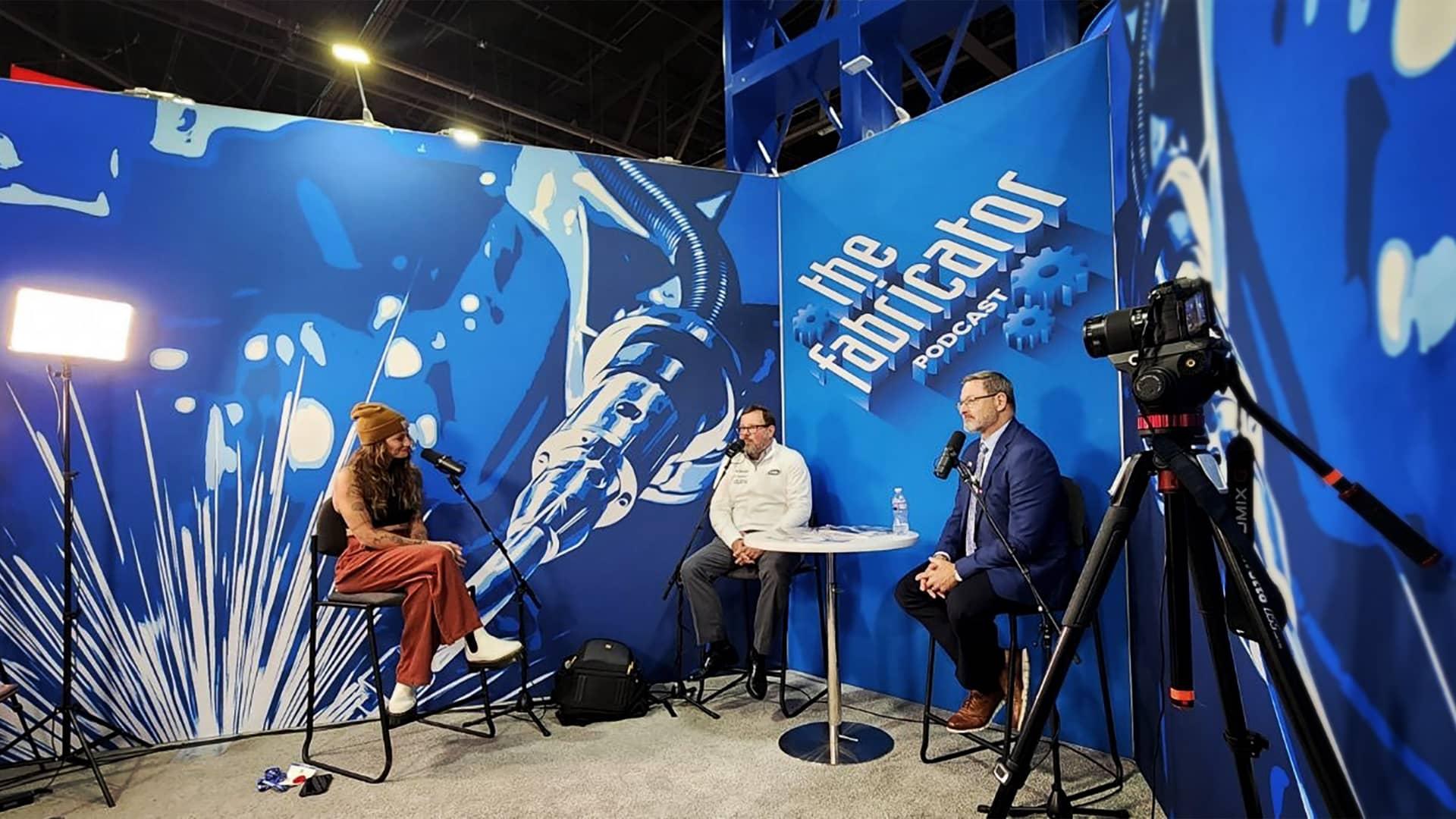
About This Podcast
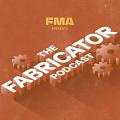
All Episodes
-
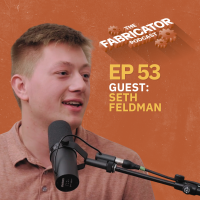 Ep. 053
Ep. 053 -
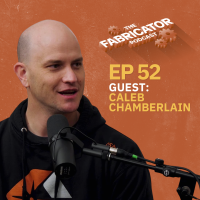 Ep. 052
Ep. 052 -
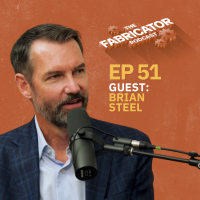 Ep. 051
Ep. 051 -
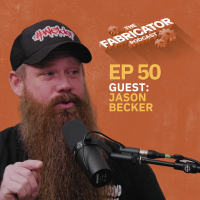 Ep. 050
Ep. 050 -
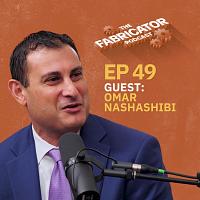 Ep. 049
Ep. 049 -
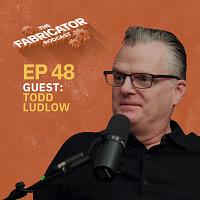 Ep. 048
Ep. 048 -
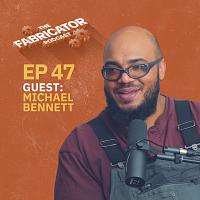 Ep. 047
Ep. 047 -
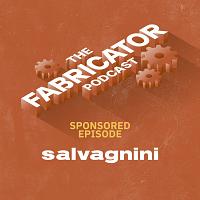 Bonus
Bonus -
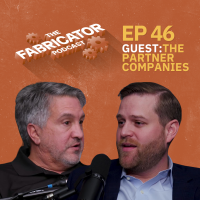 Ep. 046
Ep. 046 -
 Ep. 045
Ep. 045 -
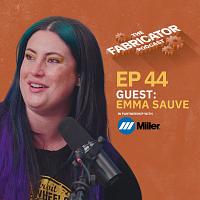 Ep. 044
Ep. 044 -
 Ep. 043
Ep. 043 -
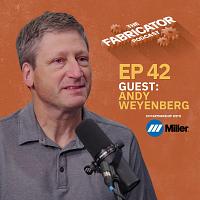 Ep. 042
Ep. 042 -
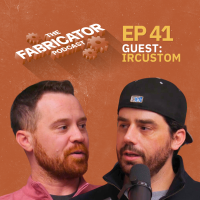 Ep. 041
Ep. 041 -
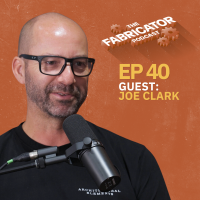 Ep. 040
Ep. 040 -
 Ep. 039
Ep. 039 -
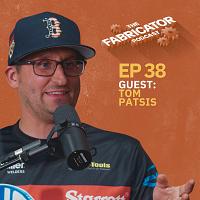 Ep. 038
Ep. 038 -
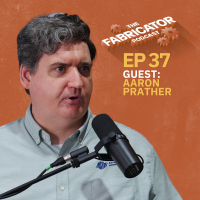 Ep. 037
Ep. 037 -
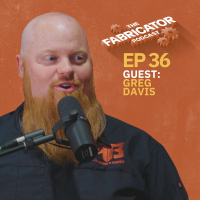 Ep. 036Go-kart fabrication, Fast & Furious, and SEMA with Red Beard's Garage
Ep. 036Go-kart fabrication, Fast & Furious, and SEMA with Red Beard's Garage -
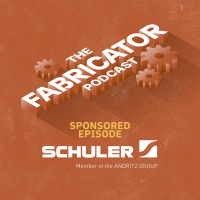 Bonus
Bonus -
 Ep. 035
Ep. 035 -
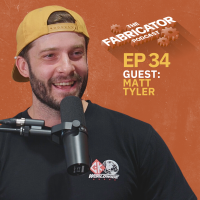 Ep. 034
Ep. 034 -
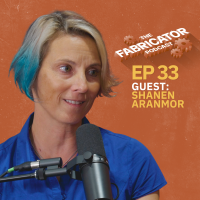 Ep. 033
Ep. 033 -
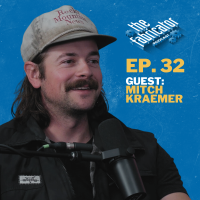 Ep. 032
Ep. 032 -
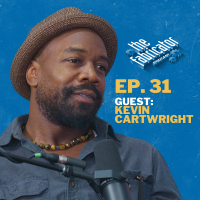 Ep. 031
Ep. 031
























